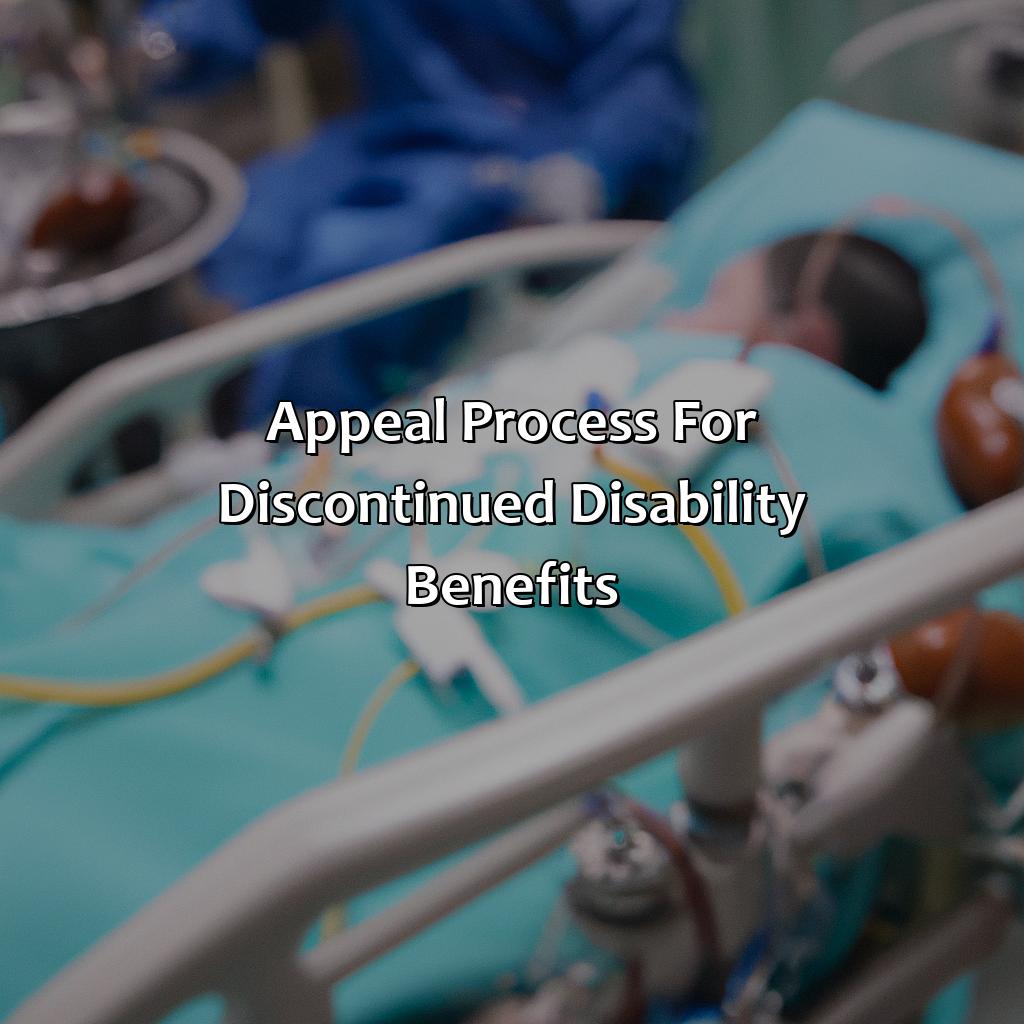How Long Can You Stay On Social Security Disability After A Kidney Transplant?
Key Takeaway:
- Social Security Disability benefits are available to individuals who have a qualifying medical condition and meet specific eligibility requirements.
- A kidney transplant may affect Social Security Disability benefits, depending on the recipient’s ability to work and earn a substantial gainful activity (SGA).
- The duration of Social Security Disability benefits after a kidney transplant varies depending on several factors, including the recipient’s recovery period, ability to work, and SGA level.
Have you recently gone through a kidney transplant and are unsure of the duration of your Social Security Disability (SSD) benefits? You are not alone! In this article, we will explore how long you can stay on SSD after a kidney transplant.
Social Security Disability Eligibility
Social Security Disability Eligibility pertains to the extent of someone’s ability to qualify for disability benefits from the Social Security Administration. For someone to be eligible, they must have worked and paid Social Security taxes long enough to accumulate the required number of work credits. In addition, their disability must be severe enough to prevent them from performing their previous work or adjusting to new work. Furthermore, the disability must last for at least a year or be considered terminal. Meeting the eligibility criteria is crucial in determining if an individual can claim Social Security disability benefits.
After meeting the eligibility criteria to claim Social Security disability benefits, individuals with a medical condition, such as kidney failure, can apply for disability benefits. It’s essential to note that Kidney failure alone doesn’t necessarily qualify an individual for disability benefits, but rather the severity of the condition’s effects on their ability to work. After a successful kidney transplant, the Social Security Administration will evaluate the individual’s current health status and ability to work. Their benefits eligibility depends on whether they can engage in substantial gainful activity or not. If the individual’s disability condition prevents them from working, even after the kidney transplant, they can claim disability benefits for as long as their condition persists.
It’s worth noting that kidney transplant recipients undergo routine monitoring and medical checkups to determine their recovery’s progress. As a pro tip, it’s crucial to maintain proper medical records and keep the Social Security Administration updated on any improvements or deterioration of one’s condition to avoid any discrepancies in their benefits.

Image credits: retiregenz.com by Harry Jones
Kidney Transplant and its Effects on Social Security Disability Benefits
A kidney transplant may impact your eligibility for social security disability benefits. Following a successful transplant, the Social Security Administration (SSA) may review your case and determine if you remain eligible for benefits. The effect varies depending on individual circumstances such as recovery time, medication regimen, and the impact of the transplant on your ability to work.
It’s important to note that the SSA defines disability as an inability to engage in substantial gainful activity due to a medically determinable impairment that is expected to last for at least one year or result in death. If the transplant improves your condition and you are able to work, your eligibility for benefits may be impacted.
However, certain conditions may still qualify you for benefits, for example, if other medical conditions prevent you from working. It’s also possible that you may qualify for a expedited reinstatement of benefits if you experience complications related to your transplant that prevent you from working within five years of your benefits discontinuation.
Pro Tip: Keep the SSA informed of your condition and how it impacts your ability to work, and seek professional guidance to understand your options.

Image credits: retiregenz.com by Joel Washington
Duration of Social Security Disability Benefits After Kidney Transplant
After a kidney transplant, the duration of Social Security disability benefits varies. The eligibility depends on the patient’s medical condition and other factors such as eligibility for other programs. However, the benefits will typically continue as long as the patient is medically unable to work. It is recommended to keep medical records up-to-date and to inform Social Security of changes in health status.
A Pro Tip: Seek help from professional advisors to understand the process and prepare required documents.

Image credits: retiregenz.com by James Woodhock
Recipients’ Responsibilities in Reporting Changes to the SSA
When on social security disability, it is important for recipients to communicate changes to the SSA. This helps prevent overpayment and upholds lawful requirements.
Keeping communication channels open with the SSA is one of the requirements of beneficiaries of social security disability. This includes reporting any changes in medical conditions, financial status, or work activity. Failing to do so may lead to inappropriate payments or legal penalties.
In order to avoid difficulties associated with late communication or non-reporting of changes, beneficiaries should plan ahead and provide proof of new disability and medical treatments in advance. Collaboration with SSA representatives can help ensure that benefits continue to flow and prevent any disruptions to the beneficiary’s financial security.
Not communicating changes to the SSA can cause trouble for beneficiaries later on. For example, some people have been overpaid, resulting in financial burdens and even lawsuits. It is important for beneficiaries to recognize their responsibilities and take the necessary steps to keep communicating with the SSA.

Image credits: retiregenz.com by Joel Washington
Appeal Process for Discontinued Disability Benefits
The process of appealing the discontinuation of disability benefits can be complex and challenging. It is important to gather all relevant medical documentation and submit a detailed explanation of why the benefits should continue. A thorough review of the decision will be conducted, and it may take several months for a final decision to be made.
It is crucial to adhere to all deadlines and follow the instructions provided by the Social Security Administration.
In addition to the appeal process, individuals may also be eligible for expedited reinstatement of benefits if their condition worsens within five years of their benefit termination. This allows individuals to receive benefits without going through the entire application process again.
According to the Social Security Administration, over 60% of disability benefit appeals are denied, underscoring the importance of seeking assistance from an experienced attorney or advocate.
It is essential to stay informed about the eligibility requirements and guidelines for disability benefits to ensure timely and continuous assistance.

Image credits: retiregenz.com by David Jones
Some Facts About How Long You Can Stay on Social Security Disability After a Kidney Transplant:
- ✅ Social Security Disability benefits can continue for up to 36 months after a kidney transplant. (Source: Social Security Administration)
- ✅ The 36-month period starts from the first month of hospitalization for the transplant. (Source: Healthline)
- ✅ After the 36-month period, Social Security will review the individual’s case to determine if disability benefits will continue. (Source: Disability Benefits Center)
- ✅ The review process includes assessing the individual’s medical condition and ability to work. (Source: Disability Benefits Help)
- ✅ Individuals who are able to work after a kidney transplant may be able to receive Supplemental Security Income (SSI) if their income and resources are limited. (Source: Social Security Administration)
FAQs about How Long Can You Stay On Social Security Disability After A Kidney Transplant?
How long can you stay on social security disability after a kidney transplant?
After a kidney transplant, you can continue to receive social security disability benefits as long as you meet the eligibility criteria and your income and resources remain within the set limits.
What are the eligibility criteria to receive social security disability benefits after a kidney transplant?
You must have a medical condition or disability that meets the Social Security Administration’s (SSA) definition of disability, and be unable to engage in substantial gainful activity (SGA) due to your condition. Additionally, you must have earned sufficient work credits and paid Social Security taxes for a certain period to qualify for SSDI.
What is the maximum income limit to receive social security disability benefits after a kidney transplant?
The income limit for SSDI in 2021 is $1,310 per month for non-blind individuals, while for SSI, the limit is $794 per month for individuals and $1,191 for couples. Any income earned above these limits may affect your eligibility for disability benefits.
Can you receive social security disability benefits if you return to work after a kidney transplant?
If you return to work after a kidney transplant, you can still receive SSDI benefits as long as your income falls below the substantial gainful activity (SGA) threshold. However, your monthly benefit amount may be reduced if you earn more than the SGA level.
Are there any time limits for receiving social security disability benefits after a kidney transplant?
There are no time limits for receiving SSDI or SSI benefits after a kidney transplant as long as you continue to meet the eligibility criteria. However, your disability status will be reviewed periodically to ensure that you still meet the definition of disability.
How can a disability attorney help with receiving social security disability benefits after a kidney transplant?
A disability attorney can assist with the SSDI or SSI application process, and represent you in hearings or appeals if necessary. They can also help ensure that you receive the maximum amount of benefits available to you based on your medical condition and other factors.
